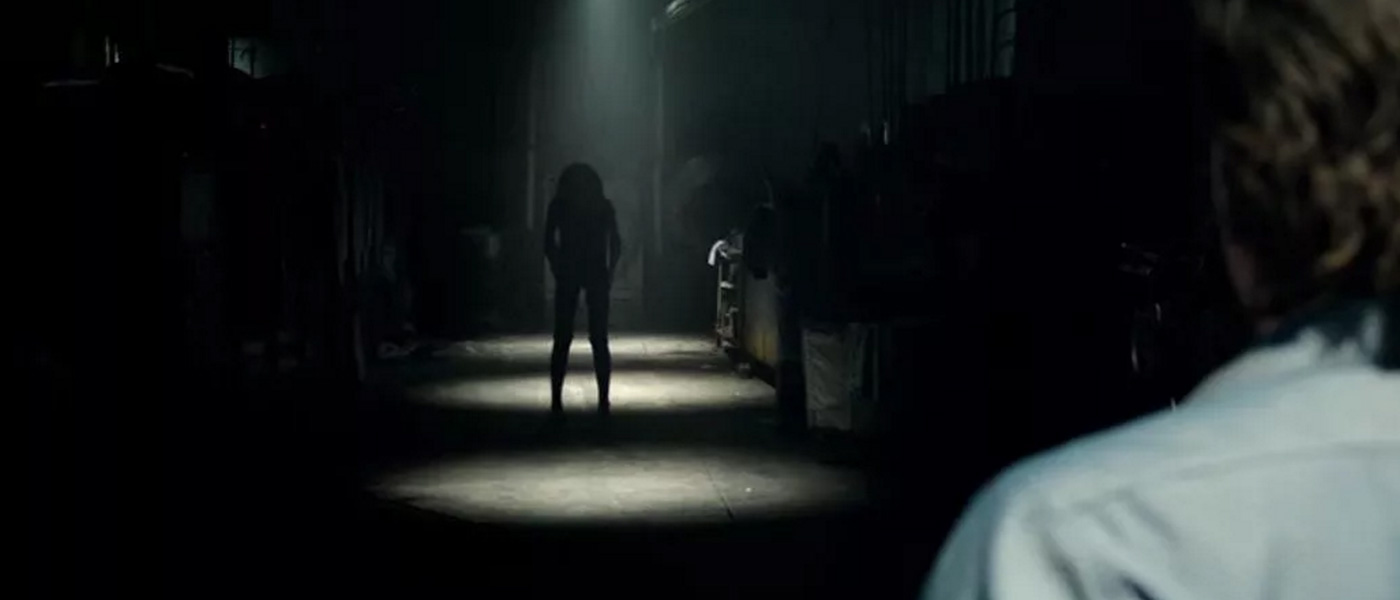Baddie-in-the-dark horror Lights Out plays fast and loose with its mental illness themes, says MacDara Conroy
The spectre of producer James Wan’s previous work looms large over Lights Out, what with its shadowy, bony-limbed and spiky-fingered bogeyman (or bogey-woman, as it were) that owes much to the frights of Wan’s own Insidious series. It’s arguably even higher concept than that spookfest: the gimmick here, based on director David F Sandberg’s own 2013 short, is a baddie that can only attack in the absence of light. But it also brings to mind the nightmarish figure at the centre of recent critical-hit The Babadook. Taking into account the psychological themes of its plot, and its antipodean lead, its debt to Jennifer Kent’s enigmatic horror may be deeper than first glances might reveal.
Rather than the strained relationship between a mother and her son, however, Lights Out hinges on a more lopsided family dynamic. Rebecca (Teresa Palmer), a wayward older sister, returns to her estranged family when her younger half-brother (Gabriel Bateman) is threatened by terrifying visions of a malevolent apparition lurking in the dark, one that vanishes when the lights come on. At first putting down such terrors to his grief at the loss of his father in a gruesome, unexplained murder, and his difficulties living with their clinically depressed mother (Maria Bello), it soon becomes clear to Rebecca that there are supernatural shenanigans at play, and they have very much something to do with their mother’s imaginary friend, ‘Diana’.
The amateur-detective plot that ensues is nothing you haven’t seen before, as the film trips over itself to painstakingly construct an unnecessary backstory for the monster of the hour-and-a-half. The real substance is in the relationship and unspoken loyalty between Rebecca and her brother Martin, who together with Rebecca’s rocker boyfriend Bret (Alexander DiPersia) make quite the scrappy makeshift family as they’re forced into increasingly desperate measures to save their mother from the demon in the black.
Desperate measures also describes the liberties Lights Out takes with regard to the mental illness aspects of its story, written by Eric Heisserer. Bello’s bedraggled, infantilised Sophie is not at all a sensitive characterisation, as the third act, taking place within the family’s almost comically gothic suburban pile, falls on old-fashioned Bedlam clichés among its haunted house tricks, as if the film is gaslighting its own audience. Problematic is the word.

That being said, Sandberg, in his first major feature, demonstrates a refreshingly dab hand with actual nail-biting tension over those ubiquitous jump scares, which are present but blessedly kept to a minimum. It’s a rare modern horror that evokes a palpable, lasting dread throughout and beyond its compact 81 minutes. That’s anchored by a strong performance by Palmer – more than a few shades of Kristen Stewart about her – which hints at but doesn’t dwell on the redemptive addict archetype. Bateman, too, does a great job as the young tortured soul, both cynical and terrified in equal measure as his face contorts in a perpetual sneer. (Watch out for cameos by Lotta Losten – wife of Sandberg, and star of the original short – and British comedian Andi Osho as a sympathetic counsellor.)
Still, Lights Out remains a missed opportunity to do something deeper than the usual multiplex shocker; to explore, say, how mental illness in adults might profoundly affect the children around them. Its frights might not be as cheap as the average fare, but the exploitation of its themes verges on the cynical.
Lights Out opens nationwide on Friday August 19th


